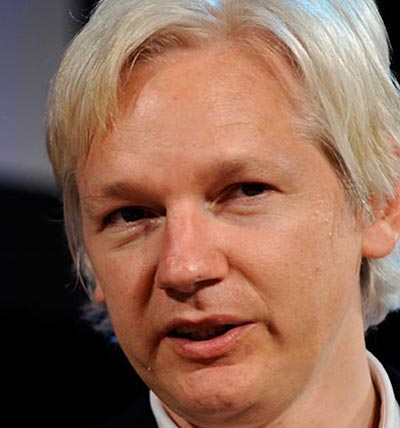IBAHRI reiterates its call to halt possible extradition of Julian Assange and uphold media freedoms
Thursday 22 February 2024

At the close of the appeal hearing of WikiLeaks founder and publisher Julian Assange, who is fighting extradition to the United States from the United Kingdom, the International Bar Association’s Human Rights Institute (IBAHRI) reiterates its call for all charges against him to be dropped, for the right to freedom of expression and information to be upheld and for media freedom to be protected as a fundamental pillar of democratic societies.
If extradited, Mr Assange could be jailed for life with sentencing of up to 175 years in prison for exposing human rights abuses allegedly perpetrated by the US army during the Afghanistan and Iraq wars.

The two-day hearing, which took place on 20-21 February 2024, convened a panel of two Judges reviewing a prior UK High Court decision (issued on 6 June 2023) that rejected all eight grounds of Mr Assange’s request for permission to appeal against the extradition order signed by then-UK Home Secretary Priti Patel in June 2022.
The extradition order was signed by the Home Secretary despite the decision of a UK District Judge in January 2021 against extraditing Mr Assange to the US on medical grounds, particularly relating to his mental health, as well as widespread international concern that his extradition may lead to serious human rights violations and have unprecedented chilling effect on press freedoms.
At the end of the two-day hearing, Judge Dame Victoria Sharp and Justice Jeremy Johnson informed the Court that they will reserve their decision, which will determine whether Mr Assange will have a further opportunity to present a case for full appeal in the UK Courts. If all grounds are rejected, Mr Assange would have exhausted all legal avenues in the UK and his extradition could be imminent.
IBAHRI Chair, Anne Ramberg Dr Jur hc, commented: ‘The pending decision regarding Julian Assange’s appeal against extradition is of exceptional significance because also on trial is public interest journalism. To be clear, the charges against Mr Assange relate to his publication of information of alleged US war crimes, making it a matter of general public importance. If Mr Assange is extradited, it will set a dangerous precedent endangering freedom of the press and expression across the globe. Further, espionage laws must not be used to target journalists who disclose information in this way. The world is paying close attention in the hope that the UK High Court will reaffirm international laws and standards protecting the right to free expression and that media freedom will prevail’.
Over the course of the many years since the US demanded Mr Assange’s extradition, many press freedom non-governmental organisations and international experts, including a number of United Nations Special Rapporteurs, have expressed deep concern over Mr Assange’s possible extradition. Of particular alarm is the chilling effect such a move could have on free expression by whistle-blowers and journalists disclosing to the public potentially grave human rights violations.
In an interview on 20 February 2024, the UN Special Rapporteur on Torture and Other Cruel, Inhuman or Degrading Treatment or Punishment, Dr Alice Jill Edwards, appealed to the UK authorities ‘to halt any possible extradition for fear that Mr. Assange[’s] health may be irreparably damaged by extradition’. Dr Edwards noted the UK’s responsibilities as party to the UN Convention against Torture and Other Cruel, Inhuman or Degrading Treatment or Punishment, as well as the European Convention on Human Rights; specifically Article 3 which prohibits States from sending people to where they may face torture or ill treatment.
In an earlier statement (dated 6 February 2024), Dr Edwards noted ‘the risk of being placed in prolonged solitary confinement, despite his precarious mental health status, and to receive a potentially disproportionate sentence raises questions as to whether Mr. Assange’s extradition to the United States would be compatible with the United Kingdom’s international human rights obligations, particularly under article 7 of the International Covenant on Civil and Political Rights, as well as respective articles 3 of the UN Convention against Torture and the European Convention on Human Rights’.
IBAHRI Director Baroness Helena Kennedy KC, stated: ‘The UK is obligated under Article 3 of the Convention against Torture and Other Cruel, Inhuman or Degrading Treatment or Punishment not to extradite an individual to a country where they could face persecution, ill-treatment, or other violations of their human rights. The UK must fulfil its obligations under international law and uphold freedom of expression and freedom of the press. Also, The US must remember its obligations and drop the long persecution of Mr Assange. The IBAHRI hopes that the imminent decision favours Mr Assange and puts an end to the protracted persecution of him.’
If the decision goes against Mr Assange, his legal team has advised that it will seek legal recourse via an application before the European Court of Human Rights to stop the extradition, as all UK avenues will have been exhausted.
ENDS
For further information, please contact: the IBA Human Rights Institute at IBAHRI@int-bar.org
Notes to the Editor
-
Background: Julian Assange was arrested in April 2019 at the Ecuadorian embassy in London, where he had been given asylum for almost seven years. He was arrested for breaching his bail conditions in 2012 and further arrested on behalf of the US authorities under an extradition warrant for his role in obtaining and publishing classified military and diplomatic documents in 2010. In May 2019, the US Department of Justice filed 18 additional charges against Mr Assange, accusing him of violating the Espionage Act by exposing information many have argued to be in the public interest.
- Related material:
-
The International Bar Association’s Human Rights Institute (IBAHRI), established in 1995 under Founding Honorary President Nelson Mandela, is an autonomous and financially independent entity, working to promote, protect and enforce human rights under a just rule of law, and to preserve the independence of the judiciary and the legal profession worldwide.
- Find the IBAHRI (@IBAHRI) on social media here:
-
The International Bar Association (IBA), the global voice of the legal profession, is the foremost organisation for international legal practitioners, bar associations and law societies. Established in 1947, shortly after the creation of the United Nations, it was born out of the conviction that an organisation made up of the world's bar associations could contribute to global stability and peace through the administration of justice.
The IBA acts as a connector, enabler, and influencer, for the administration of justice, fair practice, and accountability worldwide. The IBA has collaborated on a broad range of ground-breaking, international projects with the United Nations, the European Parliament, the Council of Europe, The Commonwealth, the Organisation for Economic Co-operation and Development (OECD), the World Trade Organization, the International Monetary Fund and the World Bank, among others.
Website page link for this news release:
Short link: www.tinyurl.com/54jmbazw
Full link: www.ibanet.org/IBAHRI-reiterates-its-call-to-halt-possible-extradition-of-Julian-Assange-and-uphold-media-freedoms
